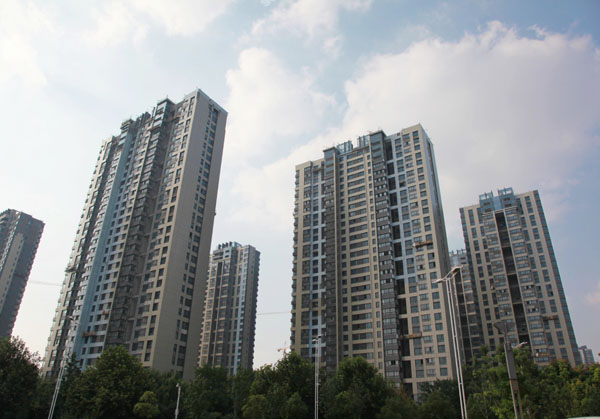Lender predicts rebound in realty investment next year
By ZHU WENQIAN (China Daily) Updated: 2014-12-03 08:15
 |
|
A housing project in Nanjing, capital of East China's Jiangsu province, Sept 21, 2014. [Photo/Asianewsphoto] |
Bank of China Ltd said on Tuesday that it expects investment in the real estate sector to rebound next year, with first-tier cities being the main beneficiaries. Driving the recovery next year would be the favorable property policies introduced in the second half of 2014, such as the further relaxation of purchase controls and lower lending rates.
The State-owned lender said that a study undertaken by its research unit-the Institute of International Finance-anticipated real estate investment will grow by 10 percent year-on-year next year, based on the steady growth in newly constructed property and funding availability.
Among a raft of measures being introduced by the government that aimed to boost the real estate sector, the authorities are likely to raise the funding support of subsidized housing, such as low-rent housing, affordable housing and fixed-price housing. In addition, the government is likely to improve the housing finance system and accelerate the growth of mortgage securitization, the report said.
The property sector has seen an investment downturn this year, amid waning investment confidence, falling sales and tight financing environment. From January to October, the accumulative investments in the property sector reached 7.7 trillion yuan ($1.25 trillion), up 12.4 percent and 6.8 percentage points lower than the same period last year. The whole year growth rate of property investment is expected to be 12 percent, a new low since the housing system reform began in 1998.
On the property sales front, commercial housing sales nationwide reached 880 million square meters from January to October, down 7.8 percent from last year, which was the second-biggest drop since 2008. Nonetheless, a property market recovery was in progress starting from the fourth quarter, and the sales growth rate is expected to turn positive from the second half of 2015.
Property prices are likely to be differentiated again nationwide. In the third- and fourth-tier cities, demand will remain sluggish with a large number of unsold houses. In cities like Beijing and Shanghai, housing prices may slightly bounce back as supply will fall short of demand.
- Cash crunch fans expectation on RRR cut
- US extends antidumping duties on China's thermal paper
- Modern food van with ancient look in Shanghai
- China home prices continue to cool in November
- Asia's top 3 billionaires all Chinese
- Old investment remedy the treatment for China's "new normal"
- China's solar sector opposes US anti-dumping ruling
- BMW to recall 846 cars in China
















